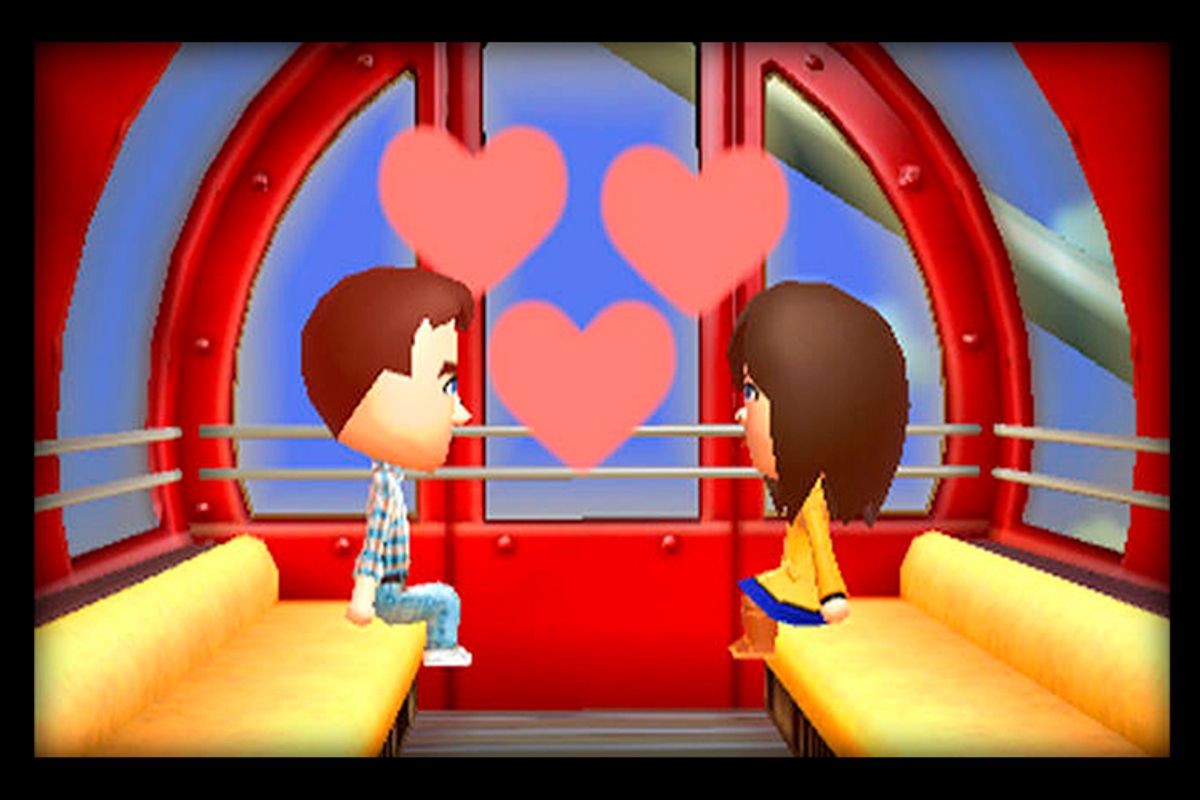Note to Nintendo: When we straight people engage in our daily activities of being heterosexual, are we making a social commentary? When we form relationships with members of the opposite sex, are we being political? When we exercise our legal right to marry, are we doing something controversial? Nope? Guess what -- it's actually exactly the same for gay people.
Nintendo has responded this week to calls for the English language edition of "Tomodachi Life" – which releases in the U.S. on June 6 -- to allow for same-sex relationships and marriages with a firm, and boneheaded, no. Last month, gamer Tye Marini launched a lobbying campaign for the life simulation game -- in which characters can "rap, rock, eat doughnuts and fall in love" as long as it's love with a member of the opposite sex -- to broaden its vision. "Because the game has such a huge focus on relationships, this is a problem for many LGBTQ gamers," he explained to Kotaku. "If a mass audience Nintendo game like this supported same-sex relationships, it would be a huge step forward for the industry." But Nintendo disagreed.
"Nintendo never intended to make any form of social commentary with the launch of Tomodachi Life," the company said in a statement Thursday. "The relationship options in the game represent a playful alternate world rather than a real-life simulation. We hope that all of our fans will see that Tomodachi Life was intended to be a whimsical and quirky game, and that we were absolutely not trying to provide social commentary." Yeah, why can't we just be "playful" and "whimsical" and "quirky" in our exclusive little world that doesn’t recognize the existence of people of different sexual orientations? Isn't this fun?
Same-sex unions are recognized in 17 states and same-sex relationships happen in every single one of them. That is not political; that is not commentary. That is fact. And while marriage equality has not yet reached Japan, I'm pretty sure homosexuality has. As Marini explained to the AP Tuesday, "The characters are supposed to be a representation of your real life. You import your personalized characters into the game. You name them. You give them a personality. You give them a voice. They just can't fall in love if they're gay." To ignore that is tantamount to restricting which shade of character you're permitted to form relationships with. It's just not cool.
More insultingly, Nintendo's response dismisses gay and lesbian gamers with a "Hey, we're just here to play; this isn't real and don't drag us into your politics," wave of the virtual hand. It suggests that the business of existing and loving is normal and "fun" when it's opposite-sex oriented, but part of an unfun debate when it involves LGBT people. It suggests that asking for equal representation is just picking a fight and dampening the mood.
Plenty of other companies and their games now include characters of varying orientations, with no earth-shaking effects. And while changing the traditional narrative takes a little work, it tells players of all stripes that love is love and respect is respect. And who'd want to live in a world -- any world -- where that's not the case?

Shares